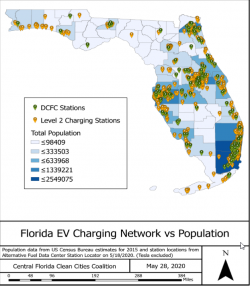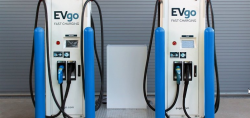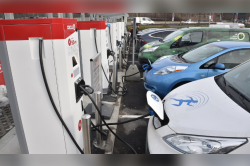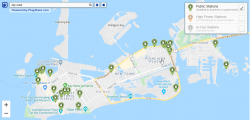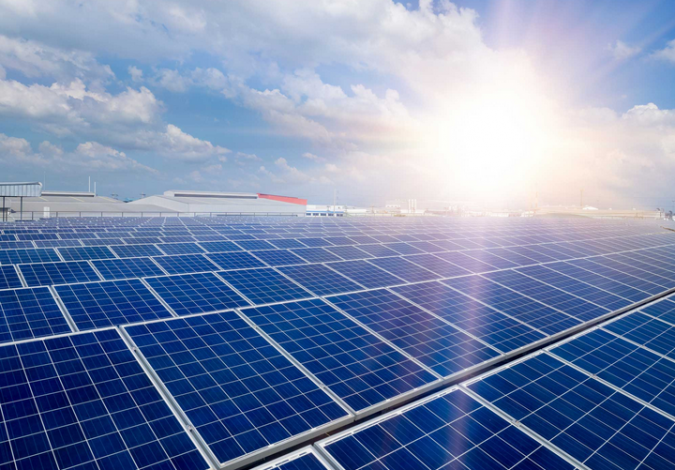Florida has the third largest number of registered Electric Vehicles (EV) and the fifth largest number of EV charging stations of any state in the US. The Florida Keys has 39 EV charging stations with 24 in Key West, 8 in Marathon and the remainder dotted along the Upper Keys. There is a proliferation of rental vehicle agencies in Key West that offer a wide selection of electric vehicles in all shapes and capabilities. But is there an infrastructure to support electric vehice ownership by the citizens of Key West and for those visitors who drive an electric vehicle to Key West? Where are these charging stations in Key West? How much do they cost? What does the future hold for private sector electric vehicle charging stations in a city that routinely touts itself as GREEN, environmentally conscious and desireous of more efficient use of energy from private citizens and government entities?
_____________________________________________________________________________________________
Florida has approximately 69,000 registered Electric Vehicles and over 4700 EV charging stations. Both vehicles and charging stations are clustered in the upper scale metropolitan areas of the state. In anticipation of spreading growth in Electric Vehicles and the following demand for EV charging stations, on June 9, 2020 Florida Governor DeSantis signed Senate Bill 7018, the Essential State Infrastructure Bill. This Bill has two-parts. (1) Along Florida's extensive turnpike system, prepare staging areas for emergency response equipment and (2) initiate a study of Florida’s electric vehicle charging grid. The bill would task the Florida Department of Transportation with developing a master plan to place EV charging stations along Florida’s Highway System, principally I-95, I-4 and I-75. The master plan deadline is July 1, 2021 with an interim report due December 2020.
The need for such a bill is urgent. The existing 4700 EV charging stations use aging technology, are not generally networked (i.e. gas stations are networked for payment options) and their placement in urban areas and hotel and building/office parking lots does not encourage intra-state transportation. The 69,000 Electric Vehicles in Florida are less than 1% of total vehicles registered but growth in EV’s and its cousin Solar power, is enthusiasic. Florida’s rapidly growing population is going to need, want and use solar power and electric vehicles.
EV Charging Stations are classified into three categories: Level 1, Level 2, and Level 3 (DC Fast Charging or DCFC). The categories are defined by the power and rate at which they charge a vehicle, and the electric infrastructure required for installation and operation. There are three levels of EV charging station:
- Level 1 - Level 1 chargers plug into a standard household 120 volt electric outlet, and are the slowest and least powerful EV charger. They provide about four to six miles of charge per hour and are typically used for overnight charging at your home.
- Level 2 - Level 2 chargers provide about 12 to 25 miles of charge per hour (depending on type of vehicle and power of the onboard charging unit). They require installation by a professional electrician and utilize a 220-volt residential or 208-volt commercial AC electrical service. Level 2 chargers charge three to six times faster than a Level 1 charger, and are the most commonly-used EV charger.
- Level 3 - DC fast chargers can deliver more than 80 miles per half hour of charge. Although much faster than Level 1 and 2 chargers, they require costly electric infrastructure for their installation and use, and are primarily used for public charging along transportation corridors.
So what of Key West?
All but one of the 24 EV chargers in Key West are located at a hotel or resort. Almost all of the hotel chargers are Tesla designed. They are free to use. Stay at the hotel as a guest or plug in while you are having breakfast, lunch or dinner. The one EV charger open to the public is located:
- In the parking lot behind City Hall. The address for City Hall is 1300 White St. City Hall is located at the intersection of White St. and United St. The parking lot is accessed from United St. The cost is $0.49 per kWh. Two stations are located right behind the Building Department, both with J1772 plugs.
- EV charging location maps for Key West show a charger at the Eco Discovery Center adjacent to the Truman Waterfront Park. I went looking for it and could not find it anywhere. (I believe it is employee only and in the rear of the building).
Only one private company that provides EV Charging stations has contacted Key West about establishing any sort of charging station network. That company is ChargePoint. Here are the Top 20 EV charging station companies. To be honest, there are so few electric vehicles in Key West the probability of public-use EV stations, like a regular gas station, being installed in the near future is slim. Most people I know who have an electric vehicle charge up overnight at home. For example, the house I have for sale at 914 Williams Alley in Old Town Key West has a ChargePoint Level 2 charger.
And the Future ?
Keys Energy Utility Board’s Strategic Plan lists as a goal to Reduce Reliance on Fossil Fuels. Within that goal is a stated strategy to develop an overall Florida Keys Electric Vehicle Program. The two primary elements of the EV Program are:
- Establish a program for the use of Electric Vehicles by Keys Energy
- Determine the role Keys Energy would play in bringing EV Charging Stations to the Lower Florida Keys, including EV Charging Station options (Levels 1 – 3 ) and rates for the electricity sent to these stations. Different rates would likely apply based on their Level and whether they are used by the public, commercial or government users. My guess is Keys Energy would not own or operate such EV stations but focus on their core skill which is to provide reliable electric service to the EV charging station.
Determining what rate Keys Energy would charge the company that owns the EV charging station can be tricky. First, there is a base rate for the electricity sent to the station for the Anticipated Demand caused by those charging their Electric Vehicle. However, during periods of Excess Demand there can also be an additional Demand Charge. It is important that the Sum of the cost of the Anticipated Demand plus the Excess Demand does not exceed the revenue obtained by the EV Charging station company from its customers otherwise that company is losing money and would stop providing service. As for “at the pump” costs, Tesla charges about $0.28/kWh at its proprietary stations while EVgo charges about $0.42/kWh. Electrify America charges between $0.19/kWh and $0.51/kWh, depending on the rate of charge available.
What of commercial Solar Power in the Keys?
Good news! Keys Energy recently began to purchase energy from the first two solar farms that are part of the Florida Municipal Solar Project (FMSP). The Florida Municipal Solar Project is a partnership between the Florida Municipal Power Agency (FMPA) and 16 Florida public power utilities. Located northeast of Orlando, the two solar farms generate a total of 223 megawatts (MW) enough to power 45,000 homes. Keys Energy has purchased 5 MW of solar-generated energy for its customers. By 2023 KEYS will be purchasing 30 MW of solar power from the Florida Municipal Solar Project, equal to 10% of its total purchased power.
“Our customers want solar energy, and it needs to be economical,” said Keys Energy General Manager & CEO Lynne Tejeda. “By working together with other municipal electric utilities across the state, we are building a large-scale project that will enable us to provide affordable, emissions-free electricity to customers.” Of note, there are no upfront costs to Keys Energy to participate in this project.
The FMSP is building five solar farms totaling 1.5 million solar panels that will generate nearly 375 megawatts by the end of 2023. FMPA is the project coordinator. Florida Renewable Partners, a wholly owned, indirect subsidiary of the Juno Beach based NextEra Energy, is the owner operator of three solar sites in Phase 1, and Origis Energy will develop two solar sites in Phase II. This is the first large utility-scale solar project for FMPA and its members.
Conclusion
The EV Charging station achitecture in Key West looks unchanged for the foreseeable future. There is no existing strategy by the City or a private sector company to grow the present architecture for public use. Hotels might add supply to satisfy their internal demand. EV car rental agencies and eventual EV fleets for the city and government entities will have charging stations, but mostly for their own use. Large parking lots might install EV charging stations for customers to pay for "park and charge". But public access, pay and go, dedicated EV charging stations are not visible on the horizon.
However, I have heard the City is soon to embark on writing a 10-Year plan to bring EV Charging Stations to Key West. If the City overtly solicits private sector investment in a strategy of "if you build it they will come" then EV Charging Stations will encourage greater private ownership of Electric Vehicles, attract travelers who drive EV's and allow the City and the TDC to tout the continued Greening of Key West VW, GM and Ford, along with a host of startup and partnering entities are investing $Billions$ of dollars in electric vehicles. Imagine an all Electric Vehicle car dealership in Key West!
If you have any comments or questions, please contact me here.
Good luck.
Additional Resources:





